Must Have Pages for Your eCommerce Site
These days, it’s easier to buy and sell online than ever. People can now access their laptops, tablets or cells to do literally everything – including buying things on the Internet. As a small business owner, you need to showcase your products and promote them far-and-wide across this new digital landscape. Today it’s essential that, at the very least, you have a basic e-commerce website to compete in the evolving business world. With this in mind, do you know the must have pages for your eComm site? Just check the list below to ensure you’re optimizing your online store.
The best e-commerce sites engage their target audience every hour of the day. They provide a customer journey that drives the success of their business. As an online store, you need to think about building an amazing user experience to climb the success ladder or risk losing out your customers just after their first visit.
Home
The index page functions as the storefront of your shop. It serves to welcomes customers to your business by providing them with information about your business and links to second level pages.
To optimize your homepage, make sure to use a BIG HEADLINE. With any media, always place the most important information clearly upfront and center.
Think about the flow. Provide the right flow. It should be very obvious where your customers are supposed to go, or what their next step should be. You want BIG, obvious call to actions (CTAs).
While your homepage can allow for many different CTAs, your main objective should always be clear to the user with big, easy-to-click buttons with direct CTAs.

The best ecommerce homepages have big headlines and clear, distinct CTAs
About Us
This is where you can state your mission and define yourself to your customers.
A customer commonly clicks on the About Us page for some specific reasons. A few examples are often:
- They want to figure out exactly what the business does.
- They want to see if the business is hiring.
- They want to make sure the business is legitimate.
- They want to see if the business serves a specific niche.
- They want to analyze the business’s success.
The list goes on and on. While there are a ton of reasons for a customer to land on the About page, they all boil down to the need for information.
In order to optimize the About page, make sure to always provide the most important and relevant information above the fold. Think about it: your customer is on your About page for a reason — make sure you answer their question(s) without forcing them to scroll.
Make sure to have also a CTA on your About page. Chances are, folks aren’t simply seeking more generic information; they’re after a deeper level of engagement.
Contact Us
Of all pages on your online store, the Contact Us page implies the most detailed level of intent, on the part of the user. So, use this information to your advantage!
To optimize, seed this page with CTAs that let your customer easily contact you in the preferred channel. Make these CTAs incredibly obvious, or use copy to immediately gratify their intent, such as “Chat Now!”
More importantly, your Contact Us page not only allows your users to contact you, but it also allows Google to find it in your local metadata.
Now, you might be thinking, “what should I include on my Contact page?” Here’s a quick checklist:
- Your hours of operation
- Your physical location
- Your phone number
- Your company’s Support contact information
Even more, once you have a website, you are now able to access Google My Business. Here, you are able to edit the information users see when Google searching your ecommerce store. This is very important for your local Google search results.
Privacy Policy
A privacy policy typically informs your users what data you are collecting and what you do with that data. It can provide information about how you go about collecting data, by a form, or cookies on your website, etc.
So, you might be thinking: do I really need a privacy policy for my online store? Simply put, the answer is likely yes, you do.
These days, there are so many new data privacy regulations and lawsuits popping up, sleeping on your privacy policy is courting trouble.
Here’s a taste of what you’re up against – these regulations all require a privacy policy:
- California Online Privacy Protection Act
- Privacy Shield
- EU General Data Protection Regulation (effective May 2018)
- Children’s Online Privacy Protection Rule
Don’t be disillusioned by this potential legalesse, however. There are plenty of powerful (and even free) tools online to help you create your site’s privacy policy. Websites like FreePrivacyPolicy.com allow anyone to generate a free, legally rock-solid Privacy Policy to use on your ecommerce site.
Return Policy
If you are doing business, you need a stated return policy. The most effective return pages clearly outline the return and exchange process in a way that’s easy to understand.
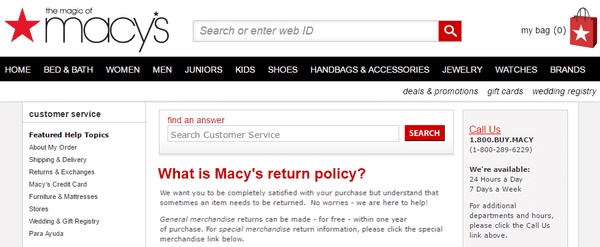
The best Return Policy pages clearly outline the procedure for customers. Credit: Macy’s
This page can often make or break a sale. If your customers feels like returning an item might be a huge hassle, they probably won’t bother buying it. However, if your return policy is generous, and clearly defined, it might assure your potential customers that doing business with you will be smooth and easy.
If they think they can easily return a item, they will be much more likely to buy it. To optimize your Return page, make sure your policy is clearly stated in an enticing way. Highlight the time of the grace period, or even, to where to address potential returns.
Category Page
In order to optimize your page for sales, it’s important for your users to not have to wade through all your products to find the one that they are looking for. Think about it, how likely are you to buy something buried at the bottom of a list of products you don’t want?
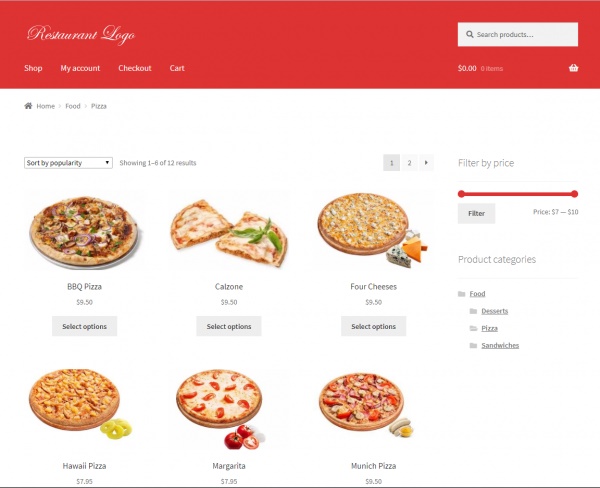
A Category page is important for ecommerce product organization
In order to convert the most sales possible, the layout of your products must be as intuitive as possible. This means have a clear, well-laid out Category page.
It’s also important for your site’s Google crawl to have this schema optimized for search. If you have clearly defined, well laid out categories, it will improve not only the user experience, but also search engine ranking – both of which mean more money for you.
Terms of Use
For any online store, it’s important that you have a well-drafted set of Terms and Conditions agreement. It needs to be clearly linked and easily available throughout your store.
This page protects your neck, legally, as well as to set out the rules that you and your customers will follow when a purchase is made. This page also limits liability in the event any conflict arises with your online ordering.
Sitemap
If you want to optimize your ecommerce site to produce the most sales possible, ask yourself one question: Can you get to every page in your website with just two clicks? This is important not just for customers, but also for search engine bots. This means you must have a XML sitemap.
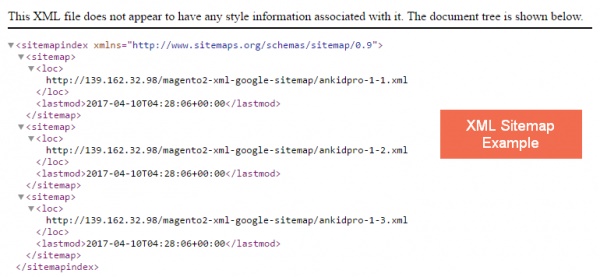
Sitemap example. Credit: BSScommerce
A sitemap makes it easy to find every single page in your website faster and also makes sure that important pages for SEO do not get abandoned. It’s simply a list of the pages on your website. It tells the search engines about the content that you have on your site so that they can find it more easily and when it was last updated. Think of it as a map for your website. It shows what all of the pages are on your website.
Here’s what the Google Overlords have to say about sitemaps:
“A sitemap is a file where you can list the web pages of your site to tell Google and other search engines about the organization of your site content. Search engine web crawlers like Googlebot read this file to more intelligently crawl your site.”
So there you have it, from the horse’s mouth: you need a sitemap to optimize the listing of your products on search results. What more do you need to know?
eHopper
If you are entering into the world of eCommerce, don’t be overwhelmed. eHopper offers a complete eCommerce solution that easily integrates with your existing point-of-sale. With eHopper, your must have pages for ecommerce performance are already optimized. All of the technical work is handled for you, while allowing you to sync inventory, process payments, and access rich reporting about your business and customers. Yo
Want to test out a complete ecommerce strategy for free? Sign up today to sell online with eHopper POS!
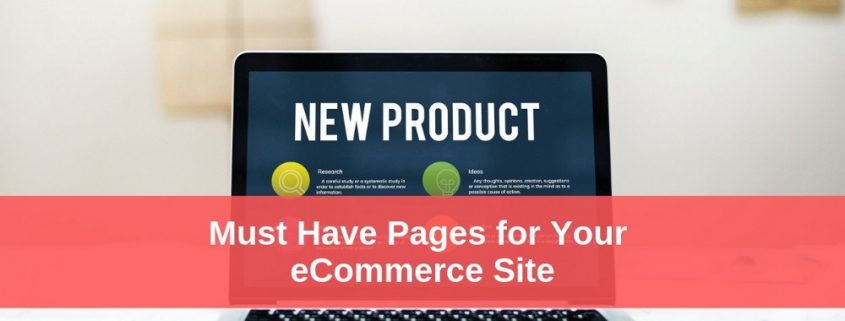

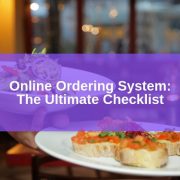
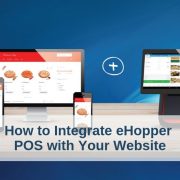
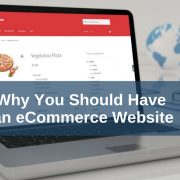
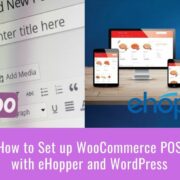
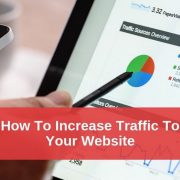


Very useful post, thanks for sharing. Could you please suggest how to write a good ecommerce return policy?
Hi Kelly,
Thank you for your questions. You can use one of the return policy templates, or even create a custom version with the return policy generator, for example: https://termsfeed.com/return-refund-policy/generator